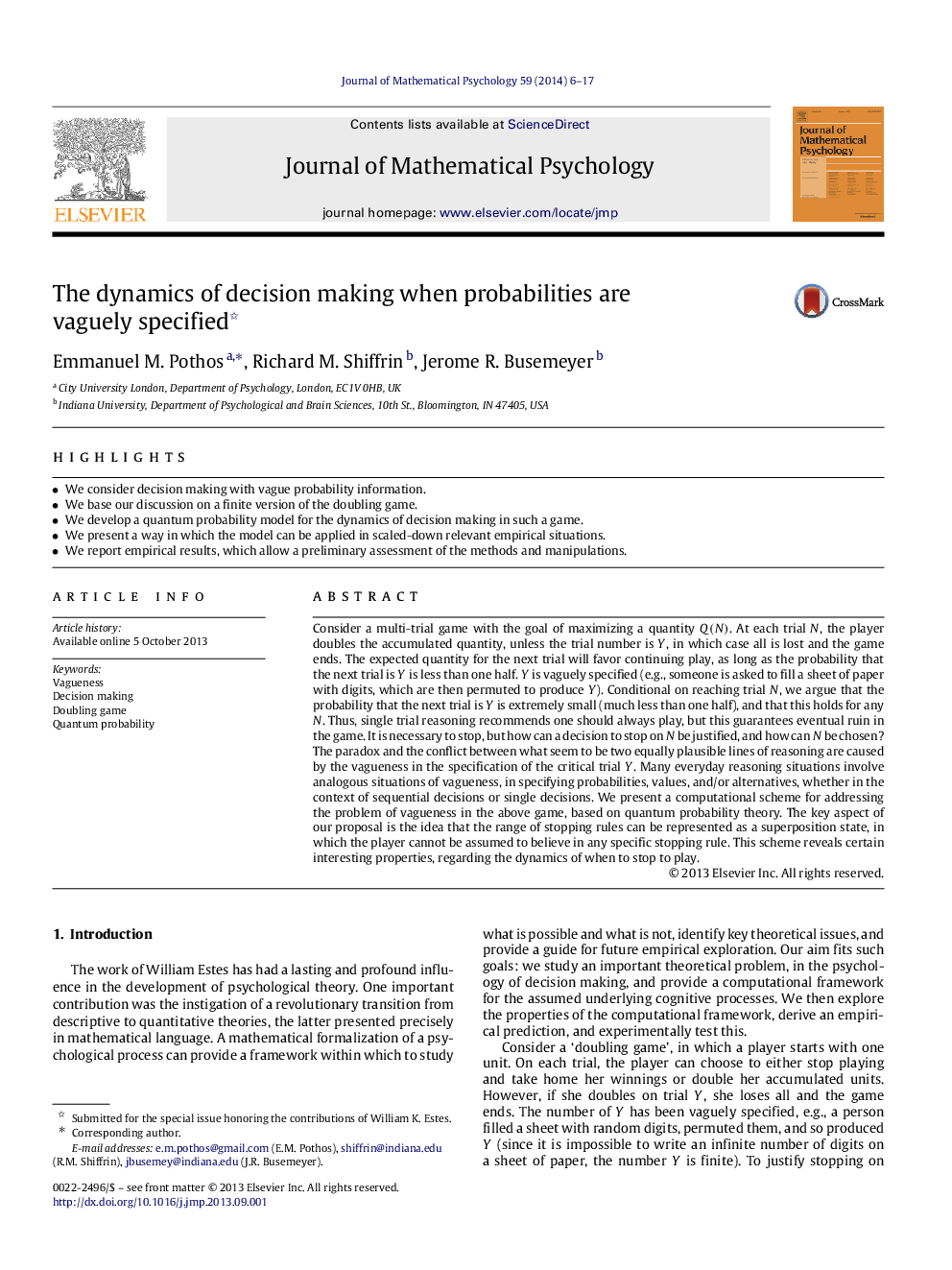| کد مقاله | کد نشریه | سال انتشار | مقاله انگلیسی | نسخه تمام متن |
|---|---|---|---|---|
| 326200 | 542046 | 2014 | 12 صفحه PDF | دانلود رایگان |
• We consider decision making with vague probability information.
• We base our discussion on a finite version of the doubling game.
• We develop a quantum probability model for the dynamics of decision making in such a game.
• We present a way in which the model can be applied in scaled-down relevant empirical situations.
• We report empirical results, which allow a preliminary assessment of the methods and manipulations.
Consider a multi-trial game with the goal of maximizing a quantity Q(N)Q(N). At each trial NN, the player doubles the accumulated quantity, unless the trial number is YY, in which case all is lost and the game ends. The expected quantity for the next trial will favor continuing play, as long as the probability that the next trial is YY is less than one half. YY is vaguely specified (e.g., someone is asked to fill a sheet of paper with digits, which are then permuted to produce YY). Conditional on reaching trial NN, we argue that the probability that the next trial is YY is extremely small (much less than one half), and that this holds for any NN. Thus, single trial reasoning recommends one should always play, but this guarantees eventual ruin in the game. It is necessary to stop, but how can a decision to stop on NN be justified, and how can NN be chosen? The paradox and the conflict between what seem to be two equally plausible lines of reasoning are caused by the vagueness in the specification of the critical trial YY. Many everyday reasoning situations involve analogous situations of vagueness, in specifying probabilities, values, and/or alternatives, whether in the context of sequential decisions or single decisions. We present a computational scheme for addressing the problem of vagueness in the above game, based on quantum probability theory. The key aspect of our proposal is the idea that the range of stopping rules can be represented as a superposition state, in which the player cannot be assumed to believe in any specific stopping rule. This scheme reveals certain interesting properties, regarding the dynamics of when to stop to play.
Journal: Journal of Mathematical Psychology - Volume 59, April 2014, Pages 6–17
